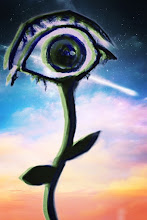(Comic) Books vs Movies
No this is about X-men. It doesn't require to much intelligence to point out how much that sucked and disappointed.
I watched V for Vendetta the other day. And I have the privelage of having already read the book before the film. I don't think I'll be able to pull the same stunt with Aeon Flux by watching the original mini-series first.
I wasn't dissapointed, "V" is an excellent film with good cinematography, characterisation
(very hard to do with a masked dramatis persona) and a pretty good story - It's just not the same as the book. The books main creator, Alan Moore, was dissapointed with the film; co creator David Lloyd attributed this to Moore probably going to be unsatisfied with anything but a direct transposition of graphic novel to screen.
I think maybe its a bit like the difference between the XII comic vs the XIII video game. I can't be certain, I haven't read the comics. I once got in trouble for proposing a merge between those two articles, I thought if they both have a title and plot elements the same - they must essentially be the same - after seeing V I think I can understand more that it is simply not the case.
Both plots are flawed in their own way. In my copy of V, Moore himself acknowledges that he approached the ramifications of a global nuclear war rather naively - plus you simply get the fact that the comics were circa 1970s while the movie was moderned up. The calamity was upgraded to biological attack - which two I think in hindsight could be recognised as being treated rather naively. Both the development, and execution and remedy for the biological attacked had several flaws. You can't trust biological elements to be quite so controllable. Jurassic Park: Life will find a way.
I think another flaw in the film plotline is that England doesn't seem to bad off. everything remains sort of middle class - in fact, poor people seem to be just non-existant at all. Fascism can certainly accomplish that (idealistically anyway). The novel managed to highlight the typical hypocrisy inherent in puritan models of governance, while the upper crust maintained a sense of unity and prevalence (which itself was corrupted by the existence of beings such as the Father) - the down and out were still starving, with vice gambling, strip bars, drinking, brawling and prostitution not exactly rare or scandalous.
Also because of the middle-class environment the inhabitants of a post-2000 Norsefire England weren't so intimidated by the government. In the book I doubt the shooting of a pre-pubescent vandal really would've sparked the community outrage it did in the movie. It would be expected, probably served the snotty subversive right. England in the book was still plagued by the sort of anarchy that the movie's US seemed to be. Norsefire in the book was elected because people really wanted it, in the movie it was more they couldn't care less. Maybe apathy was considered a more relevant issue to face by the filmmakers.
The movie certainly feels more relevant to modern society than the book - with more focus on elements like social apathy, media bias, censorship, wars on terror and the morality of rebellion/terrorism. But that said the book's themes aren't exactly irrelevant either.
Labels: adaptation, anarchy, fascism, graphic novel, movies, norsefire, politics, review, themes, v for vendetta, wikipedia, xiii
























